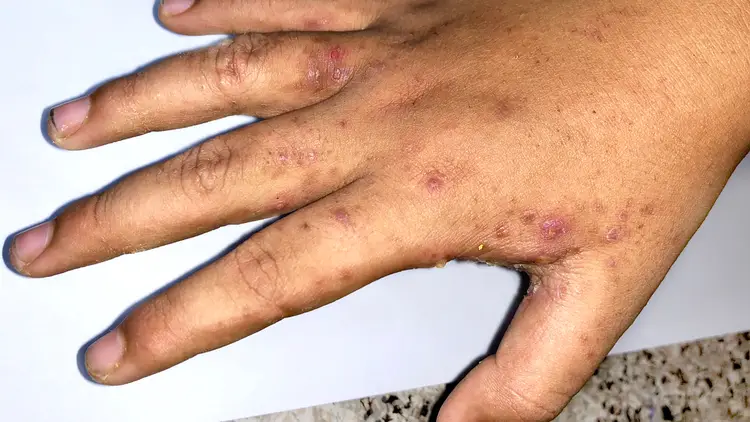Scabies cases rise in England as GPs urge people not to ignore condition because of 'social stigma'

Medical professionals are encouraging individuals to pay attention to scabies symptoms and not dismiss them due to the societal stigma associated with the condition, especially as the number of cases increases in England.

In the year leading up to April, hospitals in England recorded approximately 3,689 instances of a highly contagious skin infection. This figure represents an increase from 2,128 cases reported in the same period the previous year, marking a surge of 1,561 cases, or over 50%, based on data from the NHS.
Scabies is triggered by tiny mites that dig into the skin and lay their eggs. This can result in severe itching, particularly at night, as well as a rash. If not addressed, it can lead to serious skin issues, according to information from the NHS.
The rash can show up in various places but often occurs between the fingers. From there, it might spread and develop into small spots.
According to the Royal College of GPs (RCGP), the infection spreads through direct skin-to-skin contact, as well as via shared bedding and clothing. It can spread rapidly in environments where people are in close proximity to each other, like universities and residential care facilities.
The college is concerned that individuals might postpone or completely shy away from getting treatment due to the negative perceptions associated with the infection.
Professor Kamila Hawthorne, the chair of the RCGP, noted that although occurrences are still rare, the rate of GP diagnoses is "higher than the five-year average and increasing, particularly in the North of England where there has been a noticeable rise in cases."
Professor Hawthorne mentioned that scabies can cause significant itchiness and discomfort, but he emphasized that it isn’t considered a severe health issue.
If not addressed correctly, it could spread and increase the likelihood of complications, including "secondary skin infections or aggravating existing skin issues," she cautioned.
You can seek treatment by going to a pharmacist, who will probably suggest using a cream or lotion. The most common options are permethrin cream and malathion lotion, which should be applied to your entire body, according to the NHS.
Even though it spreads easily, the rash may not show up for as long as eight weeks.
Discover more: Big tumors extracted via eyebrow procedures, Team supports player facing racial abuse, Young person passes away in store's walk-in oven.
Both adults and children who are five years old or older can return to work or school as soon as they begin their treatment.
The NHS stated that even though the treatment effectively eliminates the scabies mites in a short time, itching may persist for several weeks.











































